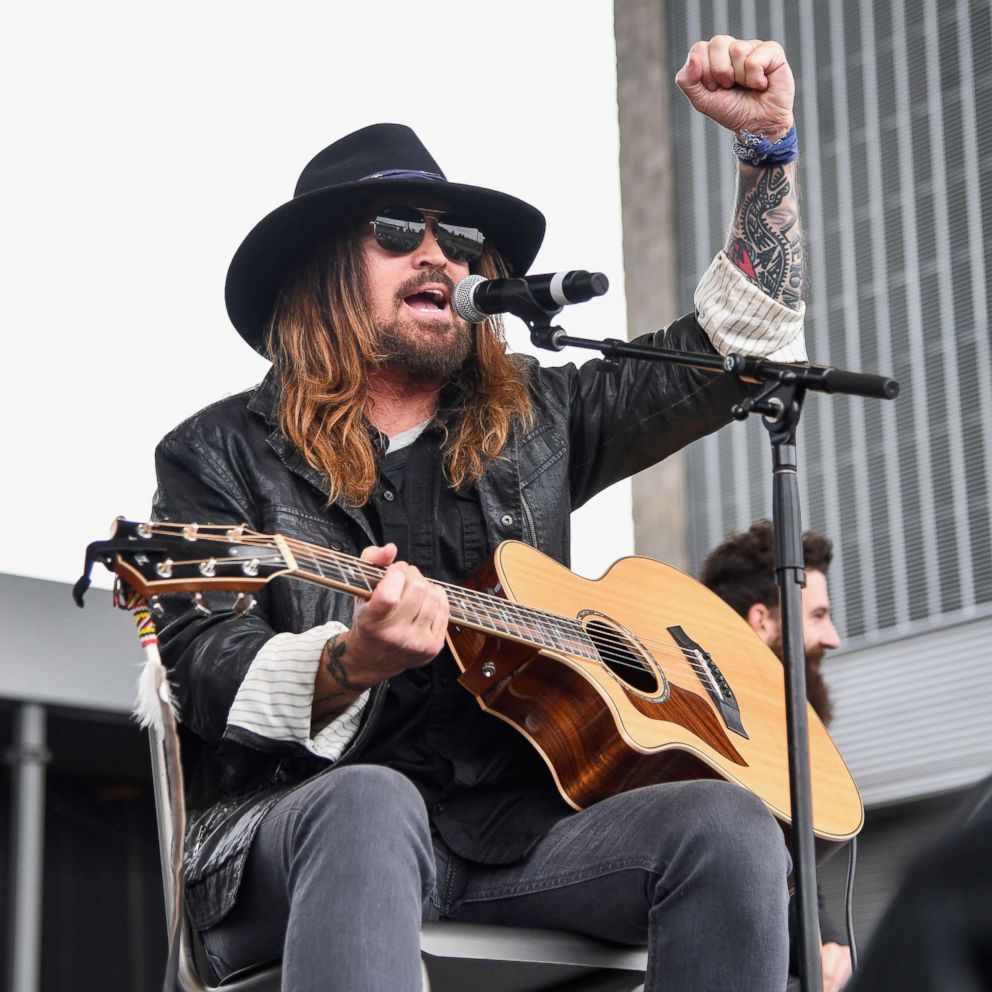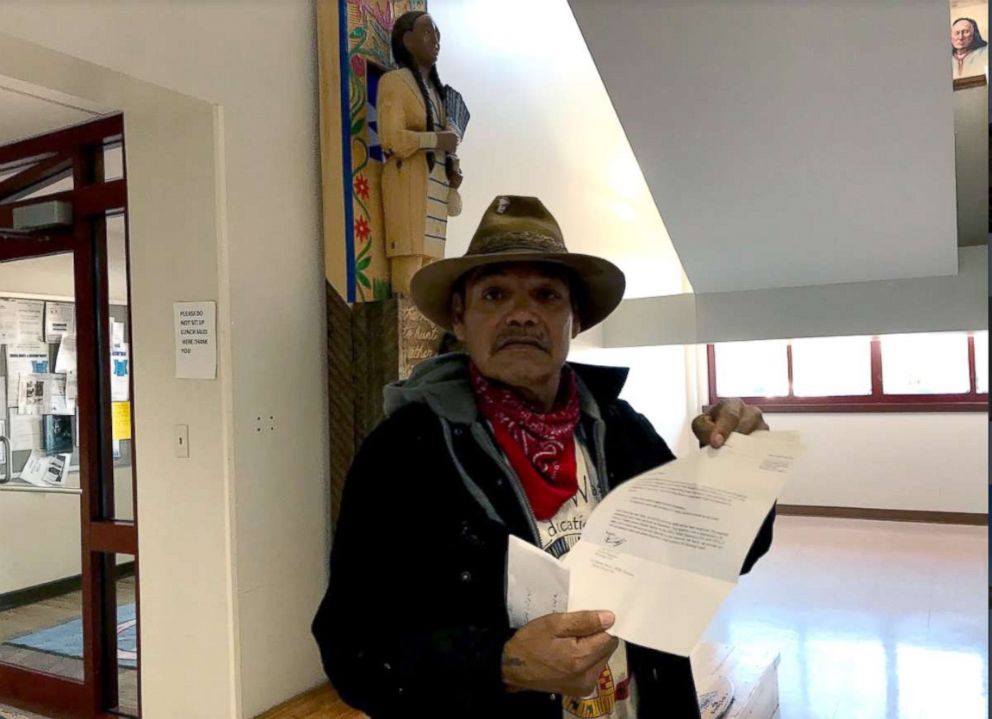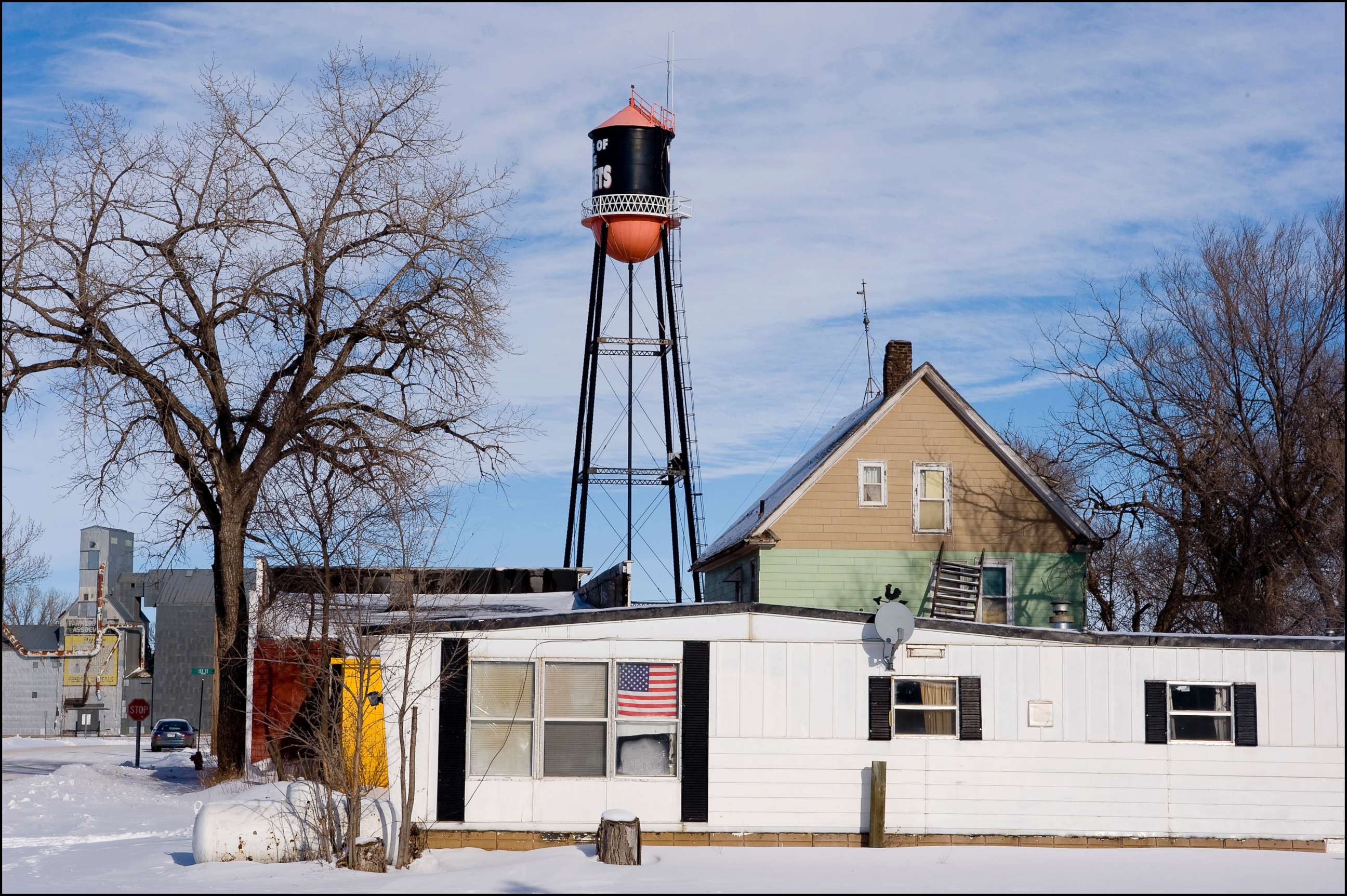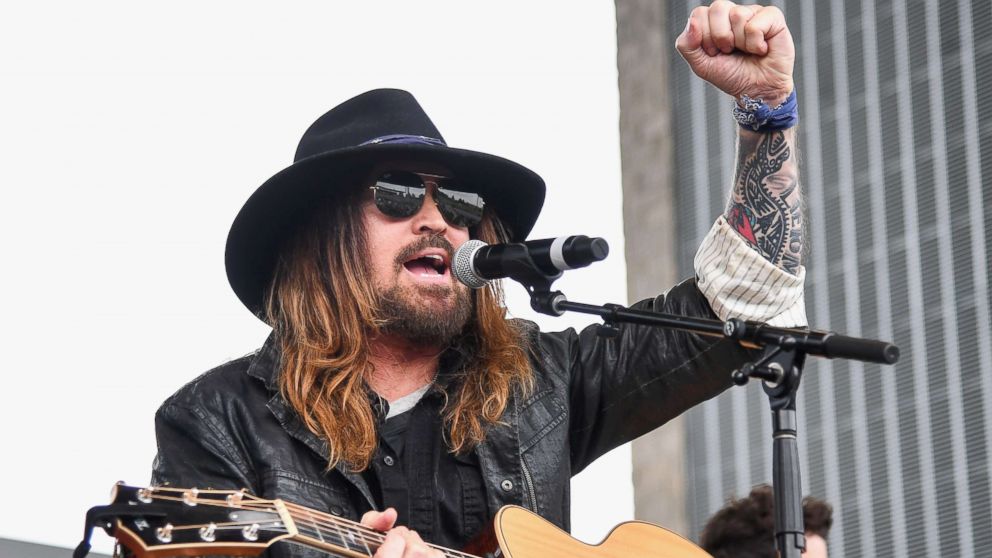With an eagle feather tucked in his guitar, Billy Ray Cyrus jumps into North Dakota tribal voting advocacy
Depending on which generation they hail from, Americans either know Billy Ray Cyrus as a country singer best known for his number one single “Achy Breaky Heart,” or the father of the uber-successful 25-year-old pop star Miley Cyrus.
But these days, Cyrus says he is using his fame to call attention to something beyond the music industry. He’s focused on the plight of Native Americans in North Dakota who are disproportionately affected by a voter ID law that tribal members say is an attempt to suppress their right to vote.

In an interview with ABC News, Cyrus said he had seen stories about the issue on the news and could not believe what he was hearing, saying that his jaw literally dropped when he found out voters may be at risk.
“I don’t know that I’d ever had a jaw-dropping moment but I sat there and after it was over, my jaw was still hanging open,” Cyrus said.
“And I was going, how can this be? How can this be? It was just obvious that they never had a street address,” he said. “And so now, you’re saying you’ve got to have a street address, and it’s got to be on your card, [or] you don’t get to go and vote. And you’re talking about a people who in large part has already had just about everything taken away.”
Earlier this month, the Supreme Court declined to overturn a lower court ruling allowing North Dakota to proceed with its strict voter ID law requiring voters to show an ID with a residential street address. The law could prevent thousands of Native Americans in the state who use post office box addresses rather than residential addresses from voting and tribal members have criticized the state for implementing the law.
Bill Left Hand, a member of the Standing Rock Sioux Tribe who has lived on the reservation in North Dakota for most of his life, reflected on the Supreme Court decision outside of a tribal council meeting in the days after the court’s ruling.
“Why they are restricting us to vote is unconstitutional because we have a right to vote, despite where we live. We're all human, you know, and we all want the right people in these offices, so we need to vote the right people in,” Left Hand said.

Stories from the ground — Native American voices — inspired Cyrus to become more vocal on the issue. On Saturday, he played at a voter turnout rally in Nashville with an eagle feather tucked in his guitar that he said was gifted to him by a tribal chief.
“I think in this given moment, it’s just a great chance for the originators of America, the Native Americans, to stand up and say ‘You know what, this democracy thing, it’s worth fighting for still. Let’s just go get our cards and let’s go vote, and keep democracy alive. Our country is counting on us’.”
Cyrus recognizes that he may not be able to provide much help in the face of a court decision less than a month before the election, but hopes that he can help rectify the lack of residential addresses on reservations.
“Everybody can stand up and argue, but it’s too late for that right now,” Cyrus said. “Like, okay — it’s showtime right now. It’s time. It’s time. You can’t take away your vote three weeks before the election and say you can’t vote, even though you voted your whole life, and you don’t have an address,” Cyrus said.
Cyrus expressed optimism that tribes can take action on this issue but called on President Trump and the first lady to speak out on the issue to raise awareness.
“There’s got to be something. You know, the president, he’s the king of fixing things. He says he can fix anything. Well, he can fix this. This’ll be an easy one,” Cyrus said.

Cyrus, who is still unsure of whether he will go to North Dakota yet to help raise awareness, says he’s willing to do whatever he can to be of service in making sure that people can get street addresses and IDs that will allow them to vote.
“This ain’t about me,” Cyrus said. “No matter how much I’ve screamed from the mountain tops unless they get that street address and they’ve got that on their cards they’re not going to get to vote.”
On the ground, Native American groups have been taking Cyrus’ message to heart, with voting rights advocacy groups helping North Dakota’s tribes come up with a plan to print free IDs for voters and help create street addresses based off a mapping grid system.
OJ Semans, executive director of Four Directions, a Native American voting rights group that has coordinated with all of North Dakota’s largest reservations, said tribes are already working on resolving the issue.
“We’re working with the tribes, getting tribal officials to be at polling places or setting up an office near the polling places so people can get a tribal letterhead, get their IDs and go votes,” Semans said. “They are going to create their own addresses to identify residences on the reservation with physical addresses.”
For Cyrus, meanwhile, the primary motivation is to make sure that people will stand up for what is right and will use the time between now and Election Day to make sure that people will be able to exercise their democratic right.
“We can’t erase and rewrite history but what we can do is stand in this moment and make a change for what is right, and let’s do the right thing here. There’s time to do it,” Cyrus said.




